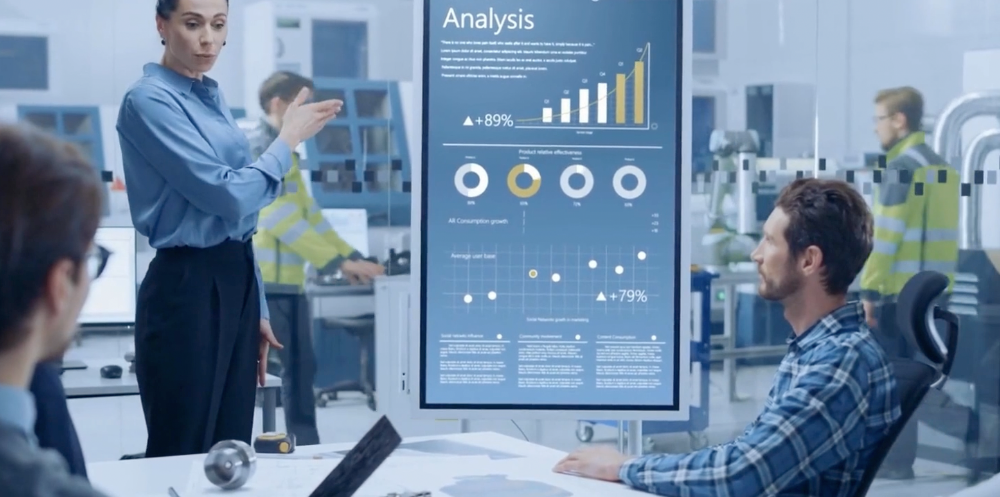FOOD INDUSTRY ENGINEERING
MASTER DEGREE
The professional in Food Industry Engineering is capable of conceptualizing, planning, designing, and managing processes, systems and services specific to the food industry, with a strong emphasis on safety.
CLASS: LM-26
LANGUAGE OF INSTRUCTION: english
COURSE FORMAT: blended
COURSE COORDINATOR: Prof. Maurizio Faccio
LOCATION Vicenza
DURATION: 2 years
ADMISSION DETAILS
Click here for the Master degree application details
SCHOLARSHIPS
Check here all the opportunities
AFFILIATION DEPARTMENT: Dipartimento di Tecnica e Gestione dei Sistemi Industriali
Visit the web site DTG
COURSES: Detailed Courses' List and Program
Check here all the details
ACCESS REQUIREMENTS
- A minimum three-year undergraduate degree (or equivalent) in Engineering, or related subjects with Food Industry.
- B2 Level (CEFR) or equivalent certificate. Please check out this link for the full list of accepted certificates, minimum scores and exemptions.
- Check here all Admission requirements and Syllabus
- For more information please check out this link.
APPLICATION DEADLINE
- For Italian Qualification check this link
- For Foreign Qualification check this link
Food Industry Engineering
The professional in Food Industry Engineering masters multidisciplinary skills and is capable of conceptualizing, planning, designing, and managing processes, systems and services specific to the food industry, with a strong emphasis on safety.
Safety serves as a prerequisite to ensure hygiene, product quality, optimal performance, and traceability of materials, as well as technical, economic, and social sustainability.
The program will train specialized professionals in various stages of production, from raw material procurement to the packaging of the final product.
Food industry plants are characterized by a combination of traditional craftsmanship and integrated automation, often featuring collaborative equipment.
A deep understanding of plant technology is essential, encompassing areas such as freezing, pasteurization, sterilization, and packaging systems.
ACADEMIC
The Master’s Degree Course in Food Industry Engineering aims to develop professionals capable of conceptualizing, planning, designing, and managing processes, systems, and services specific to the food industry, with a strong emphasis on safety. Safety serves as a prerequisite to ensure hygiene, product quality, optimal performance, and traceability of materials, as well as technical, economic, and social sustainability.
The educational path is structured around six areas:
- food technology, microbiology, safety;
- chemical and process engineering;
- design and management of automatic machines and integrated automatic systems;
- thermal exchange and energy sustainability;
- supply chain management, data digitalization, traceability, and quality;
- risk analysis and control.
The objective of the program is to train specialized professionals in various stages of production, from raw material procurement to the packaging of the final product. Food industry plants are characterized by a combination of traditional craftsmanship and integrated automation, often featuring collaborative equipment. Employees in these companies frequently work under challenging environmental conditions, including adverse thermo-hygrometric and environmental factors that can affect human health.
The main focus of professional development in this program lies in technical skills related to the design, management, and optimization of production lines. This includes integrated plant management, monitoring and control of production and process parameters, and efficient resource management. A deep understanding of plant technology is essential, encompassing areas such as freezing, pasteurization, sterilization, and packaging systems. Quality control techniques during production, with a particular emphasis on hygiene and sanitation aspects to prevent and minimize cross-contamination, are of paramount importance. The ideal candidate should also possess a strong focus on innovation and embrace an integrated supply chain approach concerning data management, traceability, energy management, and cost considerations.
COMPETENZE
Your content goes here. Edit or remove this text inline or in the module Content settings. You can also style every aspect of this content in the module Design settings and even apply custom CSS to this text in the module Advanced settings.
COMPETENZE
Your content goes here. Edit or remove this text inline or in the module Content settings. You can also style every aspect of this content in the module Design settings and even apply custom CSS to this text in the module Advanced settings.
COMPETENCES
The main competences are related to:
- the theoretical-scientific aspects of engineering, both in general terms and with specific reference to the safety of machines, plants, processes, employees working in the food industry;
- the advanced techniques of food technology, microbiology and food hygiene;
- the advanced techniques in chemical and process engineering with specific reference to the food industry;
- the advanced design techniques of machines and plants for food production, with the full compliance to product safety, hygiene and quality;
- the innovative techniques for intensified heat exchange and the rational and sustainable use of energy;
- the characteristics and range of effective use of metallic and non-metallic materials, in particular those suitable for the construction of food and packaging machines;
- the principles of technological innovation of products, processes and plants;
- the numerical, probabilistic or statistical methodologies applied to technical modeling and industrial processes, risk analysis and industrial safety;
- ability to work in a team on shared projects. It requires the ability to collaborate, communicate, and share ideas;
- ability to communicate and present results: this is the ability to clearly and concisely communicate information to others.
- ability to apply problem-solving approaches: This is the ability to identify and solve problems. It requires the ability to think critically and creatively;
- skills and abilities in managing and processing large amounts of data in a secure way. It requires the ability to use data management tools and techniques;
- language skills: this is the ability to communicate effectively in one or more languages. It includes the ability to speak, listen, read, and write.
- ability to make decisions quickly under pressure: This is the ability to make decisions quickly and effectively under difficult or stressful conditions. It requires the ability to think clearly and remain calm under pressure
EMPLOYMENT OPPORTUNITIES
The training of graduates in Food Industry Engineering opens up numerous employment opportunities in both the private and public sectors, both within Italy and internationally. Graduates can expect to find employment in responsible positions that primarily focus on automated integrated industrial processes, safety, quality monitoring systems, and food hygiene aspects:
- The first career path in the industry involves food manufacturing companies, which increasingly seek engineers capable of conceptualizing, evaluating, and managing typical food industry processes and integrated systems while adhering to stringent safety and security standards.
- A second significant avenue is within companies that produce machines and plants specifically designed for the food industry.Here, graduates with a master’s degree will be equipped with advanced design and management techniques applicable to food industry machinery and plants.
- A third avenue encompasses distribution companies within the food supply chain. Additionally, private sector companies specializing in qualified consulting services are also likely to express interest in graduates of this program.
The Food Industry Engineering graduate will be able to work as:
- an expert in the design of hygienic and safe machines and plants for the food industry;
- an expert in the innovation, design and operation of processes, plants and factories of the food industry;
- expert in the distribution of food products at different temperatures with maximum compliance to quality and safety;
- expert in safety management in factories, installations and industrial infrastructures of various kinds;
- person in charge of the prevention and protection service (e.g. RSPP required by the Italian law on safety at work) of companies and organizations involved in the food chain;safety manager within public administration control and supervision units;
- freelance food safety expert for design companies, production companies, public authorities, etc.

FOOD INDUSTRY ENGINEERING COURSE STRUCTURE
120 ECTS in 2 years
ENGLISH LANGUAGE
1° YEAR
- Legislation,hygiene and applied microbiology for food safety
- Unit operations in food industry
- Hygienic design & steels, alloys and coatings for food industry
- Materials for sustainable food packaging
- Electronics for information processing
- Refrigertion and thermal processing technologies
- Plant-safe design and food logistics
2° YEAR
- Sustainable and traceable digital supply chains and statistical quality
- Automatic machines and robots for food industry
- Safety management and risk management
- Electrification, sustainability and efficency in food processing
- Conversion and storage systems for the energy sustainability of the food industry
- Applied machine learning



